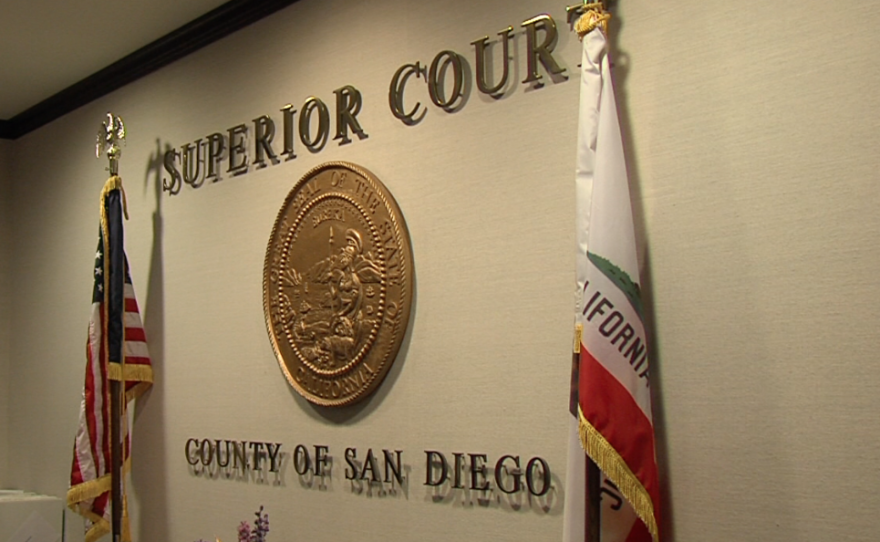State Senator Bob Hertzberg, D-Van Nuys, said he heard unbelievable anecdotes before California launched its traffic ticket amnesty in late 2015.
“Somebody jumped a fare for a $1.50 and, as a consequence, he ended up having thousands of dollars in fines,” Hertzberg said. “Somebody had a broken tail light who didn’t correct it. They lost their license. They got caught driving without a license. They had fines on top of fines.”
And for people already barely making it, not having a driver’s license only intensified their burden.
“People couldn’t get their medicine,” Hertzberg said. “People couldn’t take their kids to school. Extraordinary stories we heard throughout this process of hardship and just ridiculous fines.”
All told, Hertzberg said the state had $10 billion in unpaid traffic tickets. Trying to recoup the money was a losing endeavor. Since amnesty took effect, Hertzberg said, 176,000 Californians have had their fines reduced.
The spirit of the amnesty program was to give people a break.
But San Diego criminal defense attorney Liz Aronson contends that intent is being ignored in San Diego County. So far in the county, 7,000 amnesty cases have been granted. But Aronson said hundreds of people with traffic tickets have complained to her office over the last two years that their applications for amnesty are being returned as incomplete.
Aronson said the court’s collection agency, AllianceOne, is doing the rejection.
“And then when they rejected them, and you start fighting with them over it, they say ‘Well, you need to refile,’” Aronson said.
Even after refiling, she said, people applying for amnesty get little resolution.
“Then they say, `Oh, it’s at the bottom of the pile, and you can’t check on it,’” she said.
Eunika Smith said she has applied for amnesty but hasn’t heard back. Her license was suspended because she couldn’t pay off her tickets. She just got a new job at a hospital and needs to drive for work.
“My hand is not out,” Smith said. “But I need some help. I will not have my license if I don’t get that.”
Aronson said she’s worried because the last day to apply for amnesty is March 31st. Only people who received tickets due by Jan. 1, 2013, who have a suspended driver’s license and who are paying off tickets qualify for amnesty. They can receive up to an 80 percent reduction on what they owe.
Aronson believes AllianceOne is deliberately shutting people out of amnesty.
“They get 10 percent under the court’s contract of anything they collect,” Aronson said. “If they give amnesty, obviously they’re not going to collect that 10 percent, so what would be their motivation in allowing people to have amnesty?”
AllianceOne refused to respond to repeated requests for comment.

Mike Roddy is the executive officer of the San Diego Superior Court and oversees the operation of the amnesty program in the county. He said it’s his job to make sure AllianceOne is acting appropriately.
“I have not heard of any of these complaints,” Roddy said. “My office has not heard anything in this regard, so it’s difficult for me to step in and answer without looking into the facts, and right now you’re telling me some things that are frankly new. I’ve not heard any of these issues.”
Aronson said she has complained numerous times to court commissioners at all of the county’s four traffic courts. She said commissioners in Vista, Chula Vista and El Cajon try to help her clients. But she said commissioners in Kearny Mesa tell her she will have to deal with AllianceOne.
Aronson said the collection agency knows it holds all the power because people can’t get their driver’s licenses back unless they pay off their debt.
“I’ve actually heard AllianceOne clerks tell folks that they should go out and get credit cards and put the entire amount on the credit card and then deal with the credit card agency,” Aronson said.
San Diego Superior Court’s Presiding Judge Jeff Barton said that advice from AllianceOne is within the “best practices” provided by the Judicial Council, the state’s highest policy-making body.
“One of those is to provide the ability to people to use credit cards or debit cards, checks or other methods of payment,” Barton said. “How someone takes that advice is up to the individual.”
But Senator Hertzberg called the advice flawed.
“The idea is not to get cash in the door,” Hertzberg said. “The idea is to have a fair process to get people into the amnesty program, a fair process to get their license back as soon as possible and not to put them under pressure to use their credit card, which was never the intent of this program.”
Hertzberg recently pitched a new bill to stop automatic suspension of driver’s licenses for people who are unable to pay fines or fees for minor traffic tickets.







